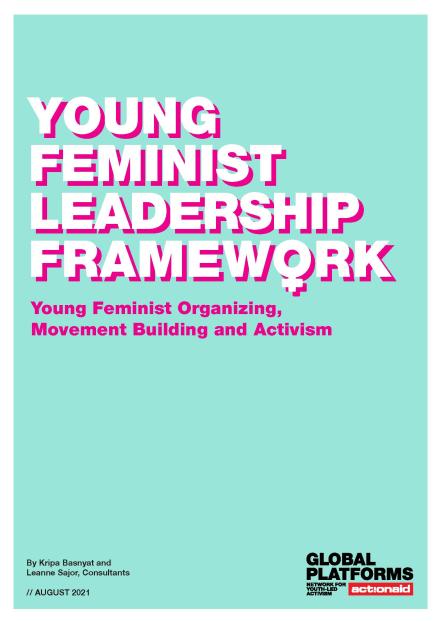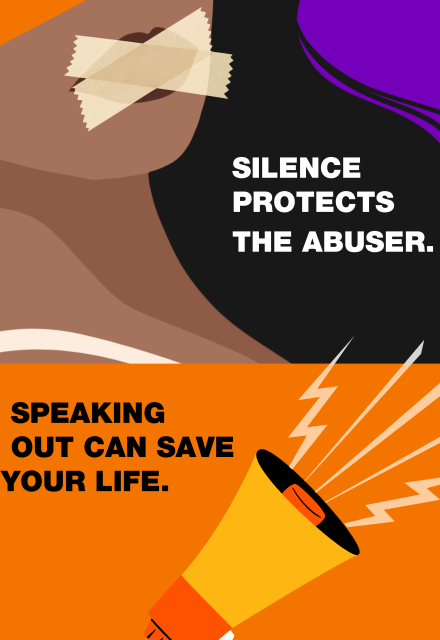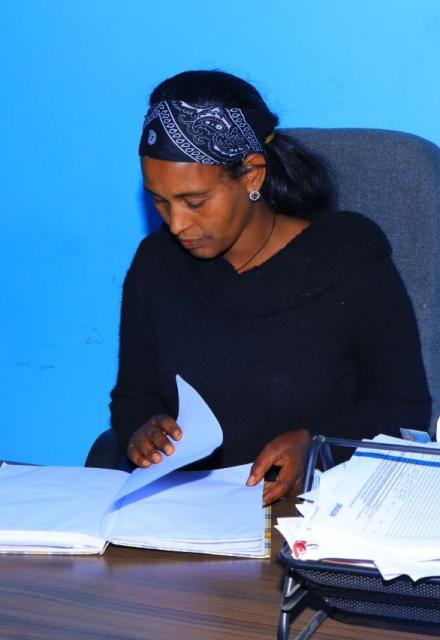Gebeyanesh Niguesse, a 23-year-old female activist in the Genja Youth Group, leads a remarkable group of ten young women. This is a safe space called Tase, which means hope. Every week, they meet to discuss matters important to them.
Genja, a lush green place where coffee originates, is in the Semen Bench district of southwestern Ethiopia, 600km from the capital Addis Ababa, far from the conflicts that plague other parts of Ethiopia. However, despite the tranquillity of their surroundings, gender equality remains a distant dream, echoing sentiments felt across the nation.
Last year, Gebeyanesh participated in a Global Platforms active citizenship training conducted at the local level, as well as in different training workshops at national level focusing on advocacy and youth for peace. With increased knowledge on HRBA (Human Rights Based Approach), and an in-depth understanding on women and girls’ rights issues, Gebeyanesh not only facilitates these group discussions, but also lends her voice to larger gatherings.
Having received education up to the college level, Gebeyanesh is intentional about seizing opportunities and claiming for her rights and those of others. Motivated by the call to work with young people in Genja from the Semen Bench Local Rights Program, she actively engaged and acted in her community.
Menstruation discrimination, fraught with inappropriate practices perpetuated by family and community, was a recurring nightmare for her and her close friends. Having unlearned these harmful traditions, she initiated discussions within her peer group's safe space sessions, sparking curiosity among them about the detrimental effects of harmful practices prevalent in their community.
These young women do not just meet to talk. Empowering these young women and girls has enabled them to become advocates against discrimination and power abuse, with courage to fight traditional practices that marginalize women and girls. Their conversations and meetings are battlegrounds for justice and better rights in a patriarchal and unequal society.
These relentless young women strategize, plan, collaborate, and unite to challenge harmful norms and traditions that discriminate against them solely because of their gender. In neighbouring villages, four other groups of young women have joined the fight, coordinating efforts monthly to amplify their impact. Continuous actions and collaborations have been key in scaling up positive actions in their community.
"We talk about all the challenges we have, all the different forms of gender-based violence, discrimination, and rights violations we are exposed to and then we decide to focus on one case at a time that we believe we can change,” Gebeyanesh explains.
Earlier this year, the young women targeted menstruation discrimination and stigma, where girls and women are not allowed to be in their own homes, sleep in their beds, cook or touch food others eat when on their periods. Many of them miss work or school due to lack of access to sanitary towels, toilet facilities, and the pervasive discrimination that exists in the area.
The lack of knowledge and understanding surrounding menstruation is staggering - many are ignorant on why women bleed, or how often. Some attribute it to divine will, the body's cleansing process, a sign of sexual maturity-marriage and child-bearing readiness, and in some instances, weakness. This misinformation perpetuates harmful practices and beliefs, leading to discrimination against menstruating girls and women.
"We started by talking to our own families and then we knocked on the doors of other families in our villages and started having conversations with them and asking questions about this practice. I no longer have to sleep in a shed when I bleed,” Gebeyanesh continues.
Initially focused on challenging discriminatory practices within their own families, their efforts have spread across five villages. Thanks to consecutive awareness education in public gatherings as well as conscientization of young women and girls through the safe space discussion sessions, Action Aid Ethiopia estimates that approximately 1,000 families have abandoned discriminatory practices against menstruating girls and women.
The next phase involves launching informational campaigns in schools in the area and expanding their advocacy efforts to more villages.
The trainings and their regular meetings have boosted their self-confidence and determination, enabling them to organize, lead, and speak up in larger forums, forging networks, and friendships across villages. United and empowered by the belief that change is within their grasp, they are determined to dismantle discriminatory traditions as they build a more equitable future.




